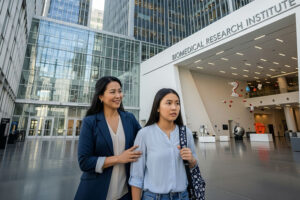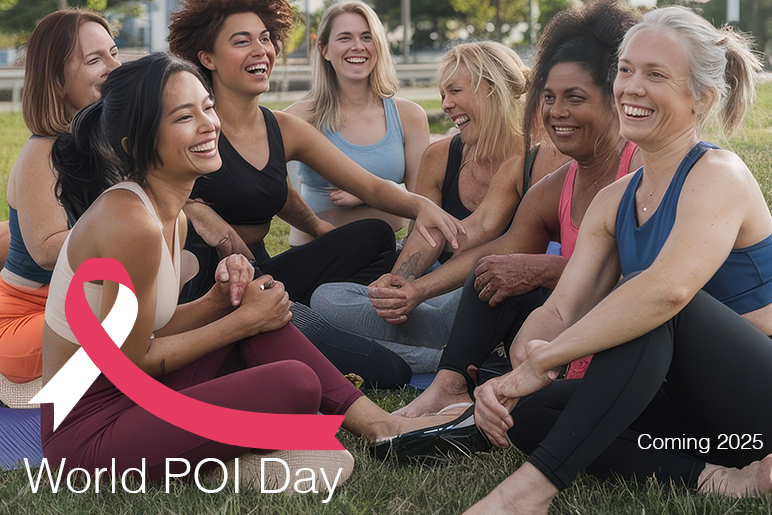
Introducing World POI Day
Recently, the Daisy Network and the British Menopause Society marked the first “World POI Day.” While this recognition reflects a growing awareness of Primary Ovarian Insufficiency (POI), it also underscores the ongoing need for clarity — and compassion — in how this condition is understood and approached.

Primary Ovarian Insufficiency Is Not Menopause
It bears repeating: this condition is not menopause. Menopause is the natural, age-related cessation of ovarian function, typically occurring around age 50. Primary Ovarian Insufficiency, on the other hand, is a pathophysiologic condition that can occur at any age — even in adolescence.
Women with POI are often placed in menopause clinics designed for midlife women, but this environment can feel alienating. The emotional and physical experiences of a teen or 25-year-old facing loss of ovarian function are not the same as those of a woman entering natural menopause decades later. The biology differs, the causes differ, and the care must differ too.
Understanding the Ovarian Ecosystem
To care for women with Primary Ovarian Insufficiency, we must move beyond the “ovarian failure” narrative and embrace a more accurate view of the ovarian ecosystem — a dynamic network involving the ovary, the hypothalamus, the pituitary, the immune system, and even the environment.
Disruption in any part of this ecosystem can lead to Primary Ovarian Insufficiency. The causes range from genetic variants (such as X-chromosome abnormalities), autoimmune mechanisms, iatrogenic injuries (such as chemotherapy or surgery), and idiopathic factors still under study. None of these has any inherent link to the biological process of aging.
When we define Primary Ovarian Insufficiency as “premature menopause,” we flatten this complexity — and inadvertently obscure both the science and the lived truth of affected women.
The Power of Coalition
This moment, however, is not for division but for building understanding. “POI World Day” can serve as an opportunity to form new coalitions grounded in truth and scientific integrity.
Basic scientists, public health administrators, menopause societies, medical endocrinologists, reproductive endocrinologists, geneticists, psychologists, and most importantly, women living with Primary Ovarian Insufficiency all have a place in this conversation — but it must be an equal table. Women with Primary Ovarian Insufficiency need to see themselves represented not as early-aging bodies, but as whole persons whose biology invites both compassion and scientific curiosity. By affirming the science, we affirm the women. And in doing so, we can build a global community where care is integrated, precise, and genuinely centered on the individual woman. It is wonderful that the British have initiated this process, yet the issue is global and requires diverse global expertise to move forward most effectively.
Service. Truth. Heritage.
The task before us is to bring service to science, truth to public dialogue, and a sense of heritage to this growing movement.
POI World Day, at its best, should not merely raise awareness — it should raise standards.




